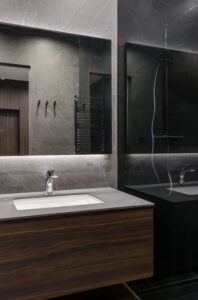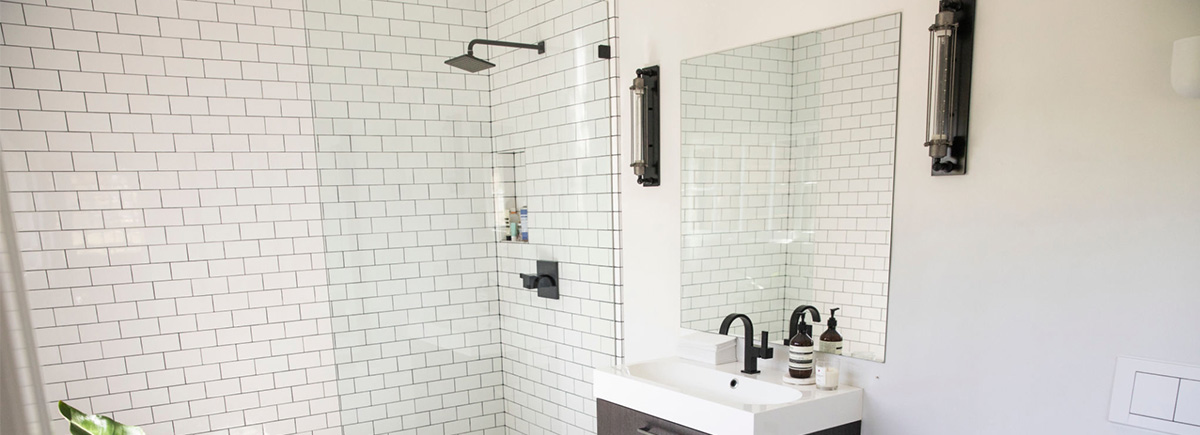7 Things to Be Aware Of When Sealing Your Shower
If you’ve found yourself with a leaking shower, chances are it’s either due to everyday wear and tear or a poor installation of your shower’s drainage system. Left untreated, a leaky shower can quickly lead to more significant problems—first, mould and mildew and then the potential for more severe water and structural damage.
If you suspect you have a leaky shower, you’ll need to reseal it before any expensive issues occur. But, before doing so, there are a few things to be aware of to ensure the leak goes away for good.
1. Australian Building Codes and Standards
Resealing a shower might seem simple, but there’s more to it than that. Certain Australian states and territories have building code standards for waterproofing, and the person carrying out the work may need a waterproofing licence. Furthermore, any shower constructed after January 1998 must have the correct waterproofing material in the corners where the walls meet.
2. Shower Membrane
Your shower floor diverts 99% of the water toward the drain opening, but it still needs a backup for any moisture that gets through cracks in the tiles or any openings next to the drain. This is where your shower membrane comes into play, catching any excess moisture to protect your bathroom and building structure from mould, mildew, and water damage.
Waterproofing membranes are designed to last a long time, with even the most basic membranes lasting at least ten years. However, leak problems can still occur if the membrane is not installed correctly, which is why certain states require a licensed practitioner.

3. Shower Drain
Your shower drainage system is critical to keeping a leak-free shower. Within the shower drain is a puddle flange, which directs water into the drain after it comes into contact with your shower’s protective membrane.
If there’s an issue with the drain or flange, for example, a blockage (think excess hair, grime, soap residue), then water will not be able to drain away, leading to flooding or broken pipes.
4. Tapware, Tiles, and Fixings
For your shower to be correctly sealed, it must have a silicone seal to protect any areas where the waterproof membrane may be exposed, for example, behind the tapware. If the silicone hasn’t been applied properly, water can work its way behind the tiles—and that’s when water damage can occur.
There should also be sufficient silicone where tiles meet the corners, and the wall meets the floor. These areas are susceptible to movement and require a flexible material, such as silicone, instead of grout (which can easily crack).
5. Shower Screen
As with your tile joints, the person installing must properly seal the connection between your glass shower screen and the tile surface. Again, this is a joint where movement can occur, so it’s important to inspect every corner to check for sufficient silicone.
If you need to re-apply silicone in these areas, it’s best practice to apply the silicone on the inside of the screen, offering better protection and less likely to cause leaks in the future.
6. Grout
Healthy grout is critical for a leak-free shower. Naturally, however, grout will deteriorate between your shower tiles, which can lead to leaks.
If you think your shower grout has reached the end of its usable life—or suspect it hasn’t been installed correctly—there are a few telltale signs to look out for. First, crumbling, cracked or decaying grout means that it needs replacing, while chalky, powdery grout suggests it wasn’t mixed properly in the first place.
7. Skills and Tools
At first glance, a leaky shower might seem like a quick fix, but when you dig into the details, it becomes clear that a fair few areas need to be assessed—and a few might need attention.
While some fixes are easier than others, only some have the skills, time, or desire to do the job themselves. There’s also a list of equipment that the job may require, such as silicone guns, sealant, mineral turpentine, knives, and so on. For some, it’s just not worth the hassle—or beyond their ability—which is when it’s a good idea to call in your local shower sealing experts.
Leaking shower? Call in the pro’s
If you suspect you’ve got a leaking shower, don’t delay fixing it. Our friendly team is here to help, offering fast response time and quick, effective fixes for your shower and plumbing needs. Call Shower Solutions today.

